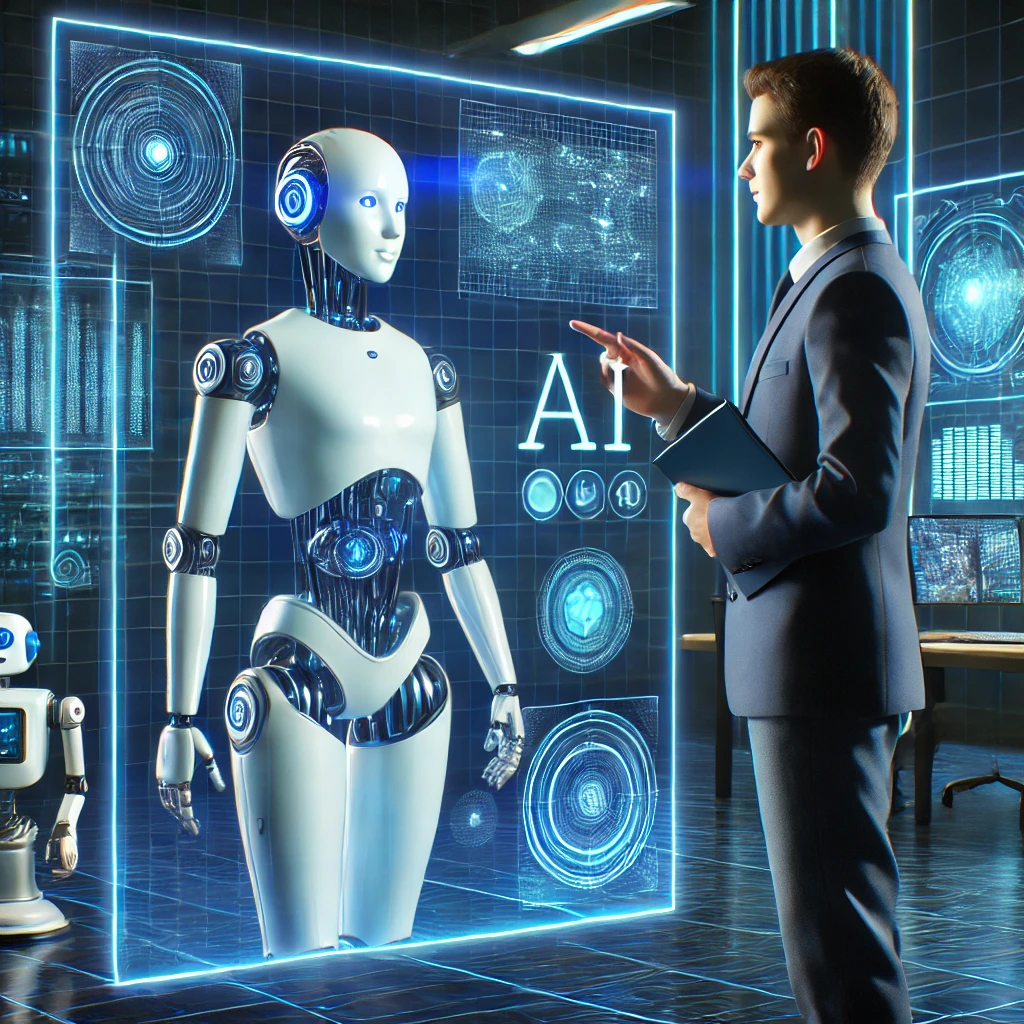February 17, 2025
·user
AI Agents: The Future of Autonomous Intelligence

Introduction
Artificial Intelligence (AI) is rapidly transforming how we interact with technology, and one of its most groundbreaking applications is AI agents. These intelligent software programs are designed to autonomously perform tasks, make decisions, and interact with humans and other systems. In this blog, we will explore what AI agents are, their types, applications, and how they are shaping the future of automation and decision-making.
What Are AI Agents?
AI agents are autonomous programs that perceive their environment, process information, and take actions to achieve specific goals. They can operate with or without human intervention, continuously learning and improving from their interactions.

Types of AI Agents
AI agents can be categorized based on their capabilities and level of intelligence:
- Simple Reflex Agents – These agents operate based on predefined rules and respond directly to environmental stimuli. Examples include thermostats and rule-based chatbots.
- Model-Based Agents – These agents maintain an internal model of the world, allowing them to predict the consequences of their actions and make more informed decisions.
- Goal-Based Agents – These agents make decisions based on goal satisfaction, using search algorithms and planning techniques to determine optimal actions.
- Utility-Based Agents – These agents maximize an objective function to ensure the best possible outcomes, such as AI trading bots optimizing financial returns.
- Learning Agents – These agents use machine learning algorithms to improve performance over time based on past experiences and ne
Applications of AI Agents
AI agents are being deployed across various industries, revolutionizing processes and enhancing efficiency. Some key applications include:
- Customer Support: AI-powered chatbots and virtual assistants provide 24/7 customer service, handling queries, booking appointments, and troubleshooting issues.
- Healthcare: AI agents assist in diagnosing diseases, personalizing treatment plans, and managing patient care.
- Finance: AI trading bots analyze market trends, execute trades, and manage risk in real-time.
- Autonomous Vehicles: Self-driving cars use AI agents to process sensor data and navigate safely.
- Cybersecurity: AI agents detect and mitigate cyber threats by continuously monitoring networks and analyzing anomalies.
- Smart Homes: AI agents automate home appliances, optimize energy usage, and enhance security systems.
The Future of AI Agents
As AI technology advances, AI agents will become more sophisticated and integrated into daily life. The rise of multi-agent systems, where multiple AI agents collaborate to solve complex problems, will lead to even greater efficiencies in business, healthcare, and smart cities. Ethical considerations, including transparency, accountability, and fairness, will be crucial in ensuring responsible AI deployment.
Conclusion
AI agents are reshaping the technological landscape, driving automation, efficiency, and innovation across multiple domains. From simple chatbots to advanced autonomous systems, these intelligent agents represent the next frontier in AI. As the field progresses, businesses and individuals must adapt to harness the full potential of AI agents while addressing ethical and societal implications.
© All rights reserved 2024 Teammates

